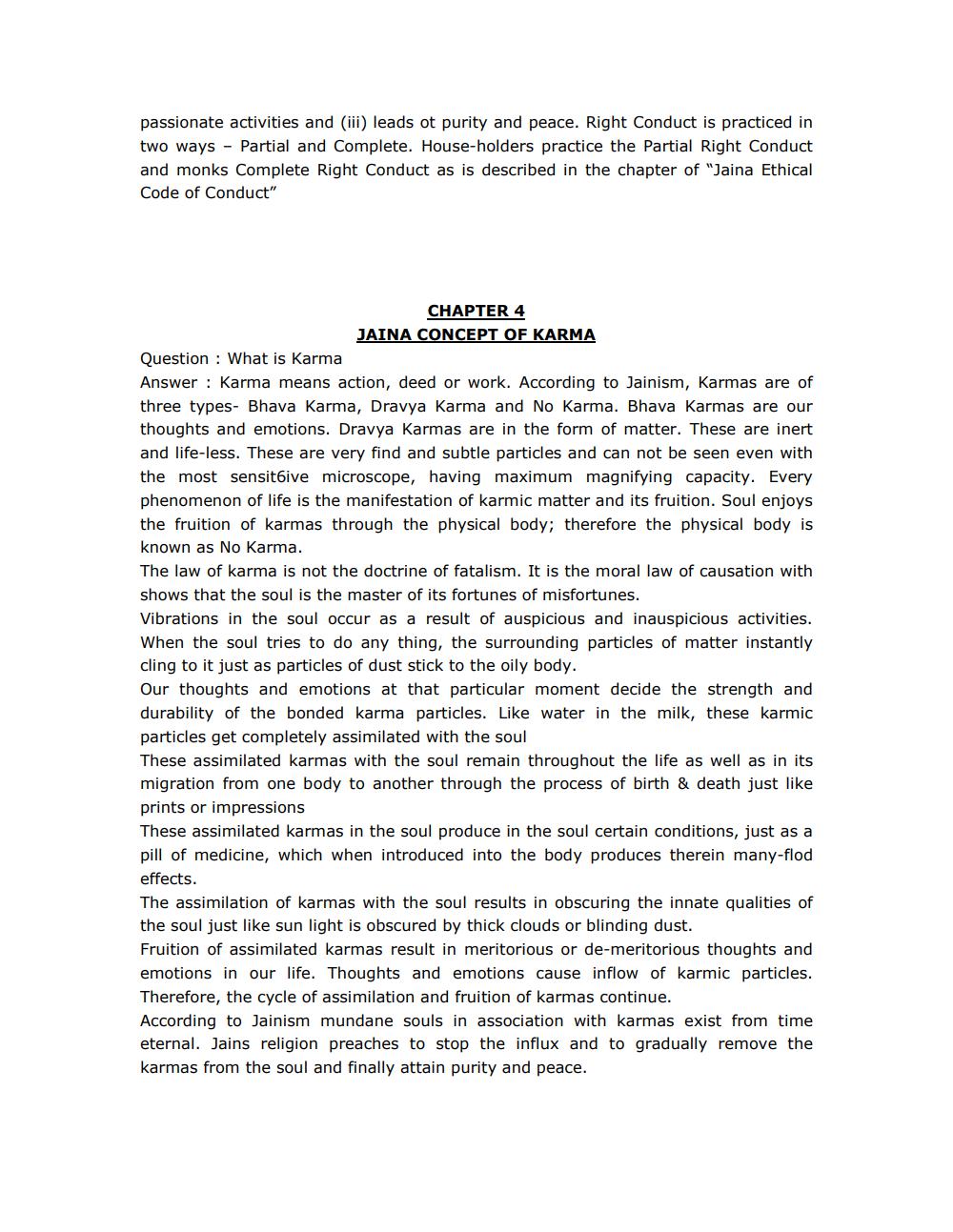Book Title: ABC of Jainism Author(s): S L Jain Publisher: Maitree Samooh View full book textPage 8
________________ passionate activities and (iii) leads ot purity and peace. Right Conduct is practiced in two ways - Partial and Complete. House-holders practice the Partial Right Conduct and monks Complete Right Conduct as is described in the chapter of "Jaina Ethical Code of Conduct" CHAPTER 4 JAINA CONCEPT OF KARMA Question: What is Karma Answer : Karma means action, deed or work. According to Jainism, Karmas are of three types- Bhava Karma, Dravya Karma and No Karma. Bhava Karmas are our thoughts and emotions. Dravya Karmas are in the form of matter. These are inert and life-less. These are very find and subtle particles and can not be seen even with the most sensitive microscope, having maximum magnifying capacity. Every phenomenon of life is the manifestation of karmic matter and its fruition. Soul enjoys the fruition of karmas through the physical body; therefore the physical body is known as No Karma. The law of karma is not the doctrine of fatalism. It is the moral law of causation with shows that the soul is the master of its fortunes of misfortunes. Vibrations in the soul occur as a result of auspicious and inauspicious activities. When the soul tries to do any thing, the surrounding particles of matter instantly cling to it just as particles of dust stick to the oily body. Our thoughts and emotions at that particular moment decide the strength and durability of the bonded karma particles. Like water in the milk, these karmic particles get completely assimilated with the soul These assimilated karmas with the soul remain throughout the life as well as in its migration from one body to another through the process of birth & death just like prints or impressions These assimilated karmas in the soul produce in the soul certain conditions, just as a pill of medicine, which when introduced into the body produces therein many-flod effects. The assimilation of karmas with the soul results in obscuring the innate qualities of the soul just like sun light is obscured by thick clouds or blinding dust. Fruition of assimilated karmas result in meritorious or de-meritorious thoughts and emotions in our life. Thoughts and emotions cause inflow of karmic particles. Therefore, the cycle of assimilation and fruition of karmas continue. According to Jainism mundane souls in association with karmas exist from time eternal. Jains religion preaches to stop the influx and to gradually remove the karmas from the soul and finally attain purity and peace.Page Navigation
1 ... 6 7 8 9 10 11 12 13 14 15 16 17 18 19 20 21 22 23 24 25
